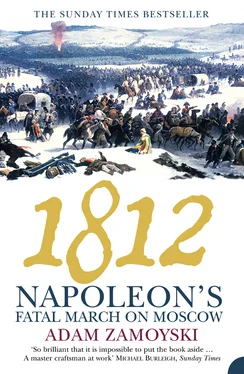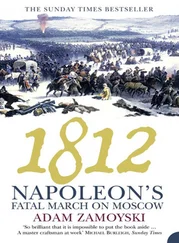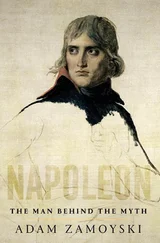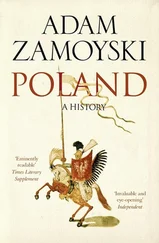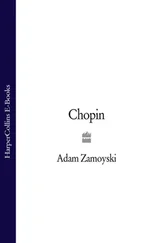The high-handedness of the arrangements, with Napoleon callously shunting provinces from one state to another, could not fail to offend Germans at every level. French became the official language in some areas. French officials were placed in key posts, and the higher ranks in the armies of the various sovereigns were reserved for Frenchmen. The large-scale official looting was also highly offensive. French military impositions and the Continental System, which actually had the effect of stimulating the coalmining and steel industries in Germany, became a cause for everyday grumbling by the very classes that naturally supported the changes brought in by Napoleon.
Cultural factors also played a part. Cosmopolitan and outward-looking as the Germans were, they were generally, whether they were Catholics or Protestants, very pious, and they found the godlessness of revolutionary and Napoleonic France shocking. In Lutheran circles, the ribbon of the Légion d’Honneur was even referred to as ‘the sign of the Beast’. Napoleon was more popular amongst Catholic Germans, until June 1809, when he dispossessed the Pope and imprisoned him in Savona, drawing upon his head the Pontiff’s excommunication. The Germans also nurtured an age-old sense of their ‘otherness’, a vision of themselves as ‘true’ and ‘pure’ in contrast to the French, whom they viewed as essentially flighty and artificial, if not actually false and corrupt. 5
It was not long before these feelings began to have practical consequences. Her catastrophic defeat in 1806 had prompted Prussia to embark on a far-ranging programme of reform and modernisation. Those in charge of carrying it out realised that a real revolution was required, both in the army, where the soldier was transformed from a conscript motivated entirely by ferocious eighteenth-century discipline into a professional inspired by love of his country, and in society as a whole, where an edict passed in 1807 swept away the remnants of feudalism and emancipated the peasantry.
This was to be a revolution from above, carried out, in the words of Frederick William’s Minister Count Karl August von Hardenberg, ‘through the wisdom of those in authority’ rather than by popular impulse. It was also to be a spiritual revolution. One of its chief architects, Baron vom Stein, a mediatised knight, wanted ‘to reawaken collective spirit, civic sense, devotion to the country, the feeling of national honour and independence, so that a vivifying and creative spirit would replace the petty formalism of a mechanical apparatus’. 6
The process was largely carried out by German nationalists from other parts of the country. Baron vom Stein was from Nassau, Count Hardenberg was from Hanover, as was General Gerhard Johann Scharnhorst; Gebhart Blücher was from Mecklemburg, August Gneisenau was a Saxon. They were inspired by the example of revolutionary France in their determination to infuse a national spirit into every part of the army and administration. But their reforms aimed not so much at emancipating people as at turning them into efficient and enthusiastic servants of the state. Many of them believed that only a strong Prussia would be able to liberate and unite the German lands, and then go on to challenge French cultural and political primacy. A powerful tool in this was to be education, and Wilhelm von Humboldt was put in charge of a programme of reform of the system that culminated in the opening of a university in Berlin in 1810.
At a popular level, the urge to seek regeneration through purification manifested itself through the formation of the Tugendbund , or League of Virtue, by a group of young officers in Berlin. Its aims were non-political in principle, consisting of self-perfection through education and moral elevation, but since this included the fostering of national consciousness and the encouragement of love of the fatherland, they were deeply so in practice. The membership never exceeded a few hundred, and all they did was sit around talking of insurrection, guerrilla war and revenge. But it is in the very nature of secret societies to appear more powerful and threatening than they actually are, and the Tugendbund had profound symbolic significance.
It also acted as an inspiration and a focus to disaffected elements in other parts of Germany. The German nation’s impotence in the face of the arrogance of the French was underlined as the cost of the Continental System made itself felt. Wounded pride turned into grim determination in the minds of many German patriots, and it received its first encouragement with the news of Bailén in the summer of 1808. ‘The events in Spain have had a great effect and show what can be done by a nation which has force and courage,’ Stein wrote to a friend. 7
Napoleon was well aware of the new spirit at work in Germany. He was not particularly concerned by it, but he did, during his stay in Erfürt and Weimar at the time of the meeting with Alexander in 1808, make a desultory effort to garner some popularity, inviting professors from the university of Jena to lunch with him. He decorated Goethe with the Légion d’Honneur. He had the poet Christoph Martin Wieland brought to Weimar, and spent upwards of two hours discussing German literature with him during a ball, while a circle of astonished guests looked on. He then walked over to Goethe and engaged him in conversation. The event was commented on in the court bulletin, which explained that ‘the hero of the age thereby gave proof of his attachment to the nation of which he is the protector, and that he esteems its language and literature, which are its national binding force’. But the next day he visited the battlefield of Jena, on which he had made the Germans build a small temple to commemorate his triumph over them. 8
In 1802, the German philosopher Friedrich Schlegel had gone to Paris with the intention of founding an international institute of learning in this new Rome. Now he was looking more to Germany. Goethe, who wore his Légion d’Honneur with pride and used to refer to Napoleon as ‘my Emperor’, was also beginning to complain of the shameful state of submission into which Germany had been forced. The philosopher Johann Gottlieb Fichte, the writer Ernst Moritz Arndt and the theologian Friedrich Daniel Schleiermacher were among those who called for a national German revival and a rejection of the French hegemony. Many of those who had seen Napoleon as a liberator now saw in him nothing but an oppressor.
There had been a predictable surge of national feeling in Austria following her defeat by Napoleon in 1806, with papers and pamphlets calling for a united German front against the French. Austria’s natural desire to avenge the humiliating defeat and regain some of her losses had been powerfully reinforced by the many disgruntled mediatised counts and knights, the deposed north Italian and particularly Piedmontese nobles and the many German patriots from the Confederation of the Rhine who had taken refuge and in many cases service there. In January 1808 the Emperor Francis married for a third time. His bride, Maria Ludovica of Habsburg, was the daughter of the Captain-General of Lombardy, who had been thrown out by Napoleon, and this was not the least of her reasons for loathing the French.
The new government under Count Philip Stadion appointed by Francis in 1808 began preparing for a confrontation with France, instituting, amongst other things, a national militia, the Landwehr . This war of revenge, Stadion made clear, was to be a national, German one, aimed at expelling France and her influence from central Europe altogether. While Maria Ludovica and a poet and fitness enthusiast called Caroline Pichler reinvented a supposedly traditional German form of dress, the Tracht , the historian Johannes von Müller, the publicist Friedrich von Gentz and others underpinned the anti-French arguments with facts. They made much of what they saw as the struggle of the Spanish people against foreign domination, holding it up as an example for the Germans to follow. Authors of every kind were invited to police headquarters, where they would be asked to use their pens in the national cause, and publishers of periodicals were instructed to print patriotic poems and articles, on pain of having their publications closed down. Unbidden, the poet and dramatist Heinrich von Kleist published ‘ Die Hermannschlacht ’, a poetic appeal to Germans and Austrians alike to rise up against the French and to punish all pro-Napoleonic ‘traitors’. 9
Читать дальше
